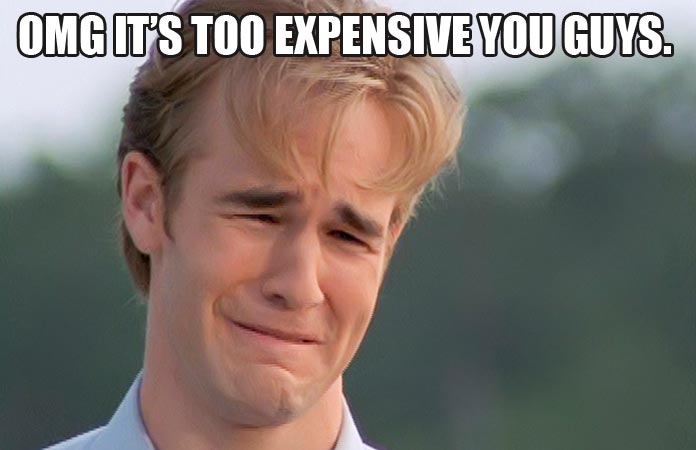On Money and Manners in Geek Culture
Published on July 5th, 2013 in: Conventions/Expos, The Internets |By Anonymous
With geek culture becoming more and more prominent, there is a lot of discussion, both online and IRL, about convention etiquette. The topics range from how to act around celebrity guests, to when to take pictures, to how to respond to sexual harassment at conventions. But I’m here to tell you that conventions you aren’t even attending may deserve more respect than you’re giving them.
Because, you see, I don’t care whether you can afford to go to my convention.
I should explain. The convention that I work on gives 100 percent of its proceeds to charity, unlike most fan-based conventions and corporate conventions, which may include philanthropy but which operate mainly as businesses. We may not have world-famous celebrity guests, but food and lodging are included in the ticket price (with varying rates for day trips and one-night stays, of course). And yet, despite our charitable purpose, it feels like we can’t even mention our event in public without someone complaining about how expensive it is.
I’m referring specifically to unsolicited comments. If someone is invited individually to an event, or asked in casual conversation why they’re not going, then they have every right to explain in as much or as little detail as they want. Under other circumstances, though, I worry that it has a chilling effect, discouraging people from investigating the actual cost and evaluating their own finances and interest. It plants the idea that our event is not worth it, and may even cast an energy of scarcity (to get all “woo-woo” about it) on the proceedings
Just as an example: Very recently, I wrote a piece about the convention for a local publication. A link was posted to the publication’s Facebook page, and the first comment was someone saying that they had been curious about it over the years, but had always found it too expensive. This is not exactly encouraging people to even read the article, much less click through to the event website and see our various rates.
By the next day, the same person posted on Facebook (in a group for contributors to that publication) saying that they were looking forward to going to a for-profit convention later this year. It costs more than our event just to get in the door at that particular convention, and way, way more if you buy photo ops, autographs, or any other frills.
What bothers me is not how this person is spending their money. I don’t know the ebb and flow of their cash flow, or what they might do for charity. What bothers me is that they dismissed my event as being too costly right on the doorstep of my attempts to get people interested in it. On top of that, the statement revealing that it was, in fact, a matter of priorities and not pricing got a much smaller audience than the first one.
This isn’t a matter of classism, either. My own resources are limited, and there are things that I’d like to attend that I can’t. The economy is bad and the US middle class is shrinking and everyone makes choices. I get that. What I’m asking is, if price is the reason that something is not for you, whether by necessity or priority . . . then why even bring it up? Why poop on what someone else is trying to do, and risk shutting down other people who might consider supporting the cause? Is it really that different than other kinds of negativity?
This isn’t just about charitable endeavors, either. Yeah, that aspect of it is part of why it can suck when people talk about my convention being too expensive. The staff actually works very hard to keep costs down, and sometimes we end up investing our own money in it. But if someone’s doing a con or other event for money, or just for the love of the subject matter, that’s equally valid, and equally deserving of consideration.
Here’s where I confess that I’ve probably made statements of the kind I’m talking about before. I’m only human, after all. And this is something you might not think about until you’ve been part of a convention or band or art expo or some similar project. But I’m going to try to be more courteous, and be more careful about when and how and in front of whom I say it if finances figure into why I’m not participating in something.
Perhaps there is a broader principle at work here. For example, did you buy new albums from David Bowie and Kanye West this year? That’s fine, but the independent musicians you know might not want to hear about how you don’t have money to spend on new music.
As new technology makes it easier to produce and collaborate and crowdsource and distribute, money is becoming a hot topic for various people who are trying to accomplish something. Unfortunately, it also means everyone’s trying to compete among a sea of opportunities, and pot shots become easier to make. Perhaps Thumper’s Rule is in order: If you’re not being supportive, it’s not necessary to speak up just because you think you have to be heard.

Time limit is exhausted. Please reload the CAPTCHA.